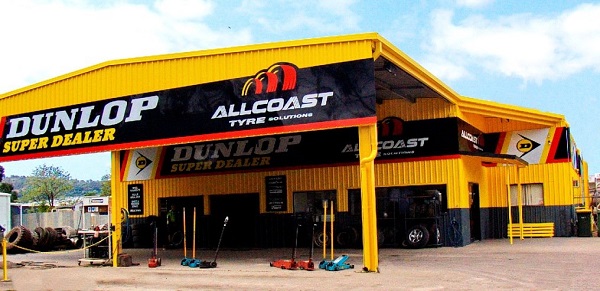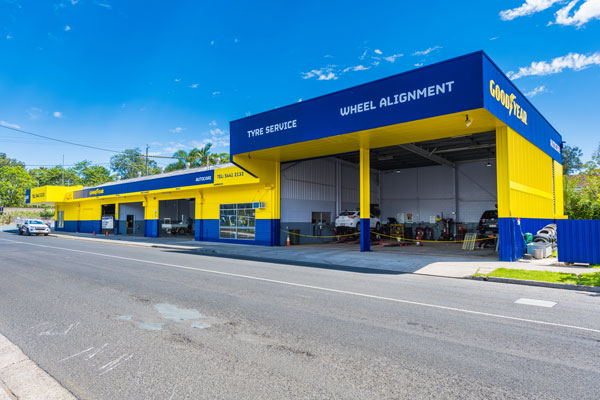
Tyre Pressures & Premature Tyre Wear
Monday 14 September 2020
Back to Latest NewsTyre pressures are one of the main causes of premature tyre wear
Air inside tyres are what carries the total load of the vehicle and passengers, correct tyre pressures is essential to ensuring the integrity of the tyre and safe handling of your vehicle.
-
How many kilometres will I get from a set of tyres?
-
Why have my tyres worn out so quickly?
These questions are among the most frequently asked questions when it comes to changing or maintaining the tyres on your vehicle. One of the most common reasons for premature tyre wear is inconsistency of your tyre pressures.
Incorrect tyre pressures, whether they are underinflated or over inflated will affect your tyre life, fuel efficiency, braking and performance. By keeping on top of your vehicles tyre pressures, not only will you see more kilometres and life out of your tyres, but also you will increase your vehicle running cost/fuel efficiency. If the increase in vehicle performance & economy doesn’t get you motivated to keep on top of your pressures, the safety aspect to ensuring your tyres are well maintained through regular pressure check and tyres maintenance services.
Under inflation
An underinflated tyre will generate excessive side wall flexing causing the rubber to overheat and increase the rolling resistance of the tyre. Underinflation over a long period can cause the side wall of the tyre to lose integrity. Over time the side wall will begin to deteriorate from the inside out, causing the tyre to eventually go flat or deflate suddenly.
Low tyre pressures unless four-wheel driving off road, will create irregular tyre wear and reduce your tyres grip on road. Irregular tyre wear can cause stress on other components of car, such as your suspension. Tyres are for the most part made up of rubber and silicon, which allows for better gripping on road, in wet conditions and when braking, particularly in emergency situations. Low tyre pressures can also impact your vehicle fuel economy as the rolling resistance will increase.
Over inflation
Having too much air pressure in your tyres will leave them over inflated, another cause of premature tyre wear. Over inflation reduces the ability of the tyre to absorb road shocks and holes, resulting in a firm uncomfortable ride. A typical sign of your tyres wearing premature from over inflation is the center of the tyre tread will wear quicker than the edges of the tyre resulting in replacement as the tyre will begin to lose its grip and integrity.
When should I check my tyre pressures?
Tyre pressures should be checked regularly, at least once a month or every 6 weeks when the tyres are cold. It’s best to check your pressures in the morning or before driving some distance, tyre pressures can generally increase (Slightly) while the tyres have generated heat. After checking your tyre pressures, ensure that all valve stems attached to your wheel and tyres all have caps on them, preferably metal valve caps as the are the best to give an ultimate seal.
What pressures should I put in my tyre?
Generally, you will find what the vehicle manufactures recommended tyre pressures are on your vehicles tyre placard. The tyre placard can be found on the driver door pillar, glovebox, under the bonnet or in the fuel flap depending on your make & model of vehicle.
However, to achieve the best performance, longevity, and ride comfort from your tyres, At All Coast we often recommend 4 – 6 PSI psi more than what is on your tyre placard. As experts in the tyre field we have found vehicle manufactures pressure recommendations are set for unloaded vehicles and aim to achieve ride comfort over tyre wear. Although their recommendation will still keep you safe on the road, our All Coast experts want to ensure the following when using or purchasing our products and services;
- Provide a solution for best tyre life for your vehicle’s application
- Better Fuel economy
- Best ride comfort
- Better handling on road when corning & braking
- Road Safety
- Your spare tyre is always checked
At All Coast, once we have serviced or completed a tyre maintenance service on your vehicle, we will place a sticker on top corner of your windscreen. The sticker will remind you of what pressures we recommend for your vehicle and its application as well when your vehicles next service is due.
All Coast’s Pressure Rule of Thumb – On road application
- Passenger: 36 – 38 PSI
- SUV: 38 PSI
- Low Profile tyres: 38 – 40 PSI
- 4WD: 38 – 45 PSI *Should you be towing or carry a heavy load with your vehicle we will reckoned up to 45 or sometimes 50 PSI. Best to have a chat to the All Coast experts about your vehicle load capacity and application.
- Trucks: Steers 110 PSI Drives 90 PSI (Dependent on tyre size and vehicle application)




